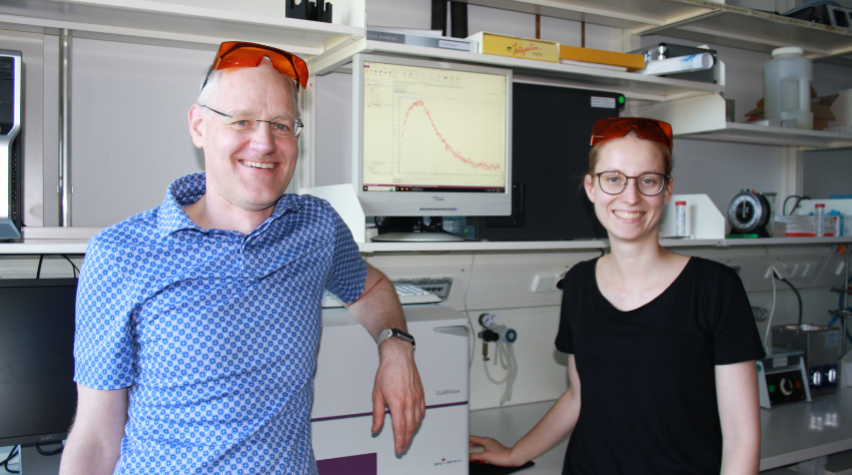
The 4th Optogenetic Technologies and Applications Conference, organized by the Society for Biological Engineering (SBE), will showcase advances in optogenetics and bring together different branches of the optogenetic community. The conference will include approaches in neuronal and non-neuronal optogenetics as well as in materials science and unicellular organisms.
We recently spoke with Andreas Möglich, Professor in Biochemistry at the University of Bayreuth, and a keynote speaker at this year’s conference. Dr. Möglich shares with us the benefits of optogenetics, new discoveries in the field, and what he predicts for the future of optogenetics.
What inspired you to do research in this field?
Our entry ticket into optogenetics and synthetic biology has been our long-standing mechanistic and structural interest into sensory photoreceptors. Prompted by our analyses of signal transduction in naturally occurring photoreceptors, we advanced to constructing artificial photoreceptors and deploying them for the light-dependent control of cellular events. A strong focus of our work is on the light-dependent regulation of bacterial gene expression at both the DNA and mRNA levels. Recent years have brought forth a multitude of ingenious applications of optogenetics that continue to motivate, inspire, and inform our work.
How do you envision this field solving some of the challenges in engineering and society?
Optogenetics in general and light-regulated gene expression lend themselves to innovative applications in biotechnology, materials science, and theranostics. As diverse as they are, pertinent applications leverage the specific advantages afforded by light-responsive circuits, especially acuity in time and space, genetic encoding, and reversibility. Thus equipped, novel use cases may be tackled, for instance in the area of smart and sustainable materials.
Are there any new developments, technologies, or applications of technologies in this field that you are particularly excited about?
I continue to be amazed by the rapid proliferation of optogenetic technologies and applications that have come up over the recent years. An area of personal interest that we are duly excited about are optogenetic applications that center on RNA molecules. Needless to say, RNA takes center stage in gene expression and associated processes inside cells, with many more roles continuing to be discovered. The future years will require a dissection of the underlying signal networks with sensitivity and precision in time and space. I believe that optogenetics has an important role to play, in particular the approaches that focus on RNA molecules.
What are you hoping the audience takes away from this conference?
Foremost enthusiasm, inspiration, and technical knowledge. As mentioned above, it is amazing to witness the sheer breadth and diversity of optogenetic tools arising over the recent past that are now at hand. To a certain extent, the approaches can be transferred to other settings and thus inspire additional efforts that propel the field forward. If attendees take away insight and motivation along these lines, a major goal would be achieved.
The 4th Optogenetic Technologies and Applications Conference will be held in Boston, MA, September 10–12, 2024. Learn more and register today.
Funding is available to help sponsor some registrations and travel costs. Students/post-docs and early-career professionals are encouraged to apply here. This grant is made possible by the AIChE® Foundation and other generous supporting organizations.

Andreas Möglich
Andreas Möglich is a professor in Biochemistry at the University of Bayreuth. His laboratory explores the structural, functional and mechanistic bases of sensory photoreceptors and their application in optogenetics. Read more
About SBE
Established in 2004, the Society for Biological Engineering is a technological community for engineers and applied scientists integrating biology with engineering. Members of SBE come from a broad spectrum of industries and disciplines and share in SBE’s mission of realizing the benefits of bioprocessing, biomedical and biomolecular applications. Learn more about SBE


